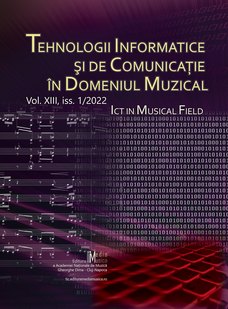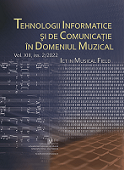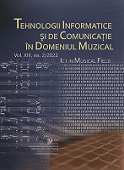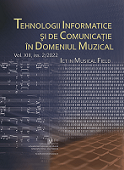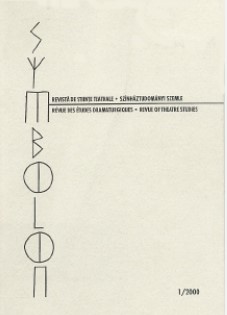Author(s): Oleg Garaz / Language(s): English,Romanian
Issue: 2/2023
The technological paradigm shift calls for and ultimately imposes a new model of collective mentality. Thus, the value of classical music (Bach, Beethoven, Wagner) should also be evaluated by the absence in that period of contemporary means of communication (recording and propagation). However, the “digital era” (Negroponte) in which we have already been living for about half a century can be considered as the fulfilment of the most sublime dream of the Enlightenment regarding progress, public comfort, access to all the privileges that, for example, a man of the Middle Ages, Renaissance, and including the Enlightenment period (Baroque) could only imagine. In reality, we live in a period of hyper-accessibility and hyper-offering in terms of the first access to creation, a situation in which anyone who feels an impulse, no matter how big or small, can afford to realize it to a full measure. The new digital democracy generates such a situation, but with a number of visible consequences which are, first of all, the de monopolization of creativity and, at the same time, the de-artisticization of art. In total consonance with the “death of art” (Arthur Danto), the exit from stylistic musical thinking (Leonard B. Meyer), the transition from the production of material goods to the production of services (Jean-Francois Lyotard), and, in general, the reformulation of materiality in virtuality. Human consciousness thus loses the (tangible) reference of materiality, which also leads to the loss of the (tangible) reference of identity. Through digitization, culture is slowly but surely putting on the clothes of a fact of civilization, losing more and more of its spiritual component and gradually turning into just a ghost haunting a shell (Ghost in the Shell).
More...
